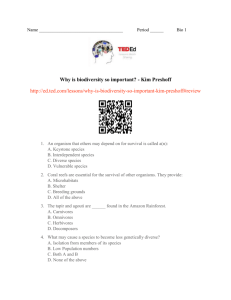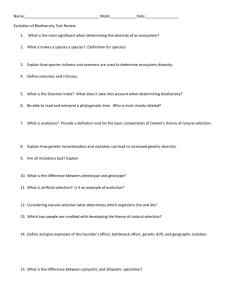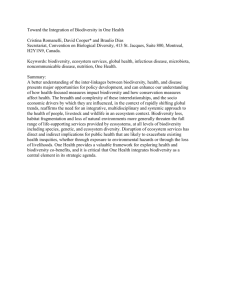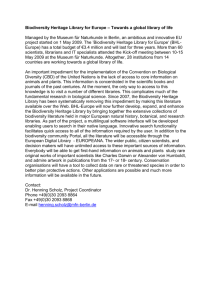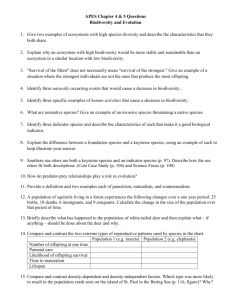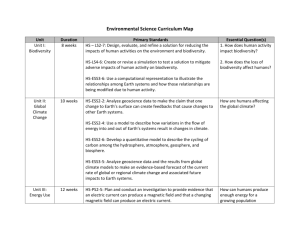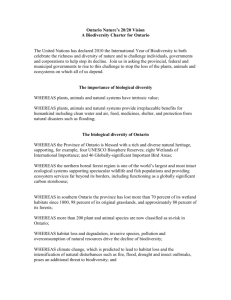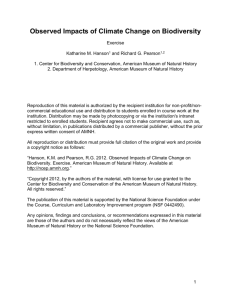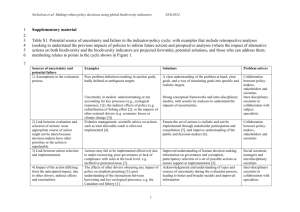Biodiversity - Ms. Teng`s Website
advertisement
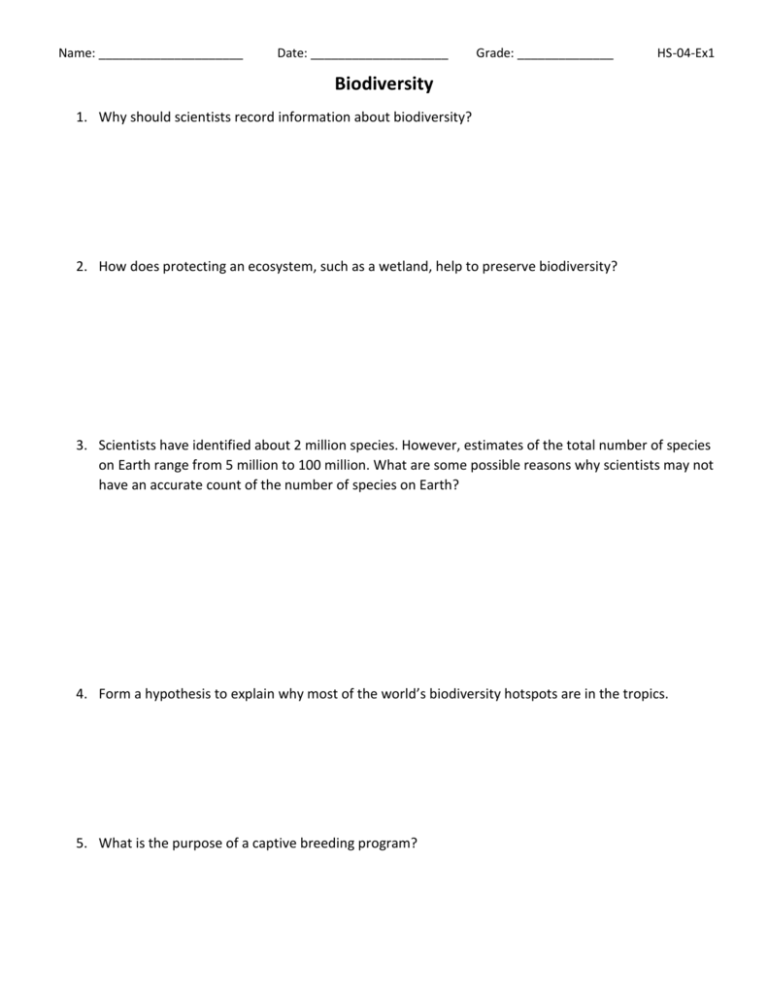
Name: _____________________ Date: ____________________ Grade: ______________ HS-04-Ex1 Biodiversity 1. Why should scientists record information about biodiversity? 2. How does protecting an ecosystem, such as a wetland, help to preserve biodiversity? 3. Scientists have identified about 2 million species. However, estimates of the total number of species on Earth range from 5 million to 100 million. What are some possible reasons why scientists may not have an accurate count of the number of species on Earth? 4. Form a hypothesis to explain why most of the world’s biodiversity hotspots are in the tropics. 5. What is the purpose of a captive breeding program? Name: _____________________ Date: ____________________ Grade: ______________ HS-04-Ex2 6. What is the relationship between the terms community and population? 7. A person with charisma attracts attention and admiration. People sometimes use charismatic species to help draw attention to an environmental problem. Explain why you would or would not choose the following as charismatic species in a campaign to protect the ecosystems in which they live. a. polar bear b. fern c. blue whale d. earthworm Do you think that charismatic species at risk deserve to get more attention than other species at risk? Justify your response. 8. Complete the following analogy: An ecosystem engineer is like a(n)…. 9. Write a slogan for a public awareness campaign to identify three human activities that have a negative effect on biodiversity. Name: _____________________ Date: ____________________ 10. The Ontario government began dropping tens of thousands of food baits inoculated with a vaccine against rabies, an alien virus, in 1989. The graph on the right shows the number of cases of rabies in Ontario from 1988 to 2000. Based on the data in the graph, do you think the campaign to control the spread of the rabies virus has been successful? Explain your answer. Grade: ______________ HS-04-Ex3
